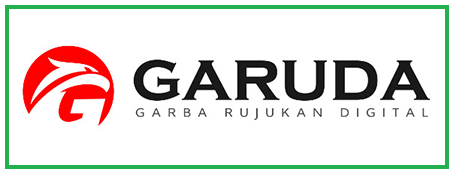The Example of Prophet Muhammad as a Business Guide: An Islamic Solution for Indonesian Migrant Workers in Hong Kong
Keywords:
Business Guide, Prophet Muhammad, Islamic Solution, Indonesian Migrant Workers,Abstract
This community service activity aimed to teach ethical business practices inspired by Prophet Muhammad to Indonesian migrant workers in Hong Kong. Conducted in early September 2024 at the Ramayana Hall, Consulate General of the Republic of Indonesia (KJRI) in Hong Kong, the program utilized PowerPoint presentations and interactive Q&A sessions. Participants demonstrated high enthusiasm and provided positive feedback, highlighting the relevance of the material to their challenges, such as managing small businesses and maintaining professional ethics. The content emphasized the importance of honesty, trustworthiness, fairness, and customer satisfaction as foundations of Islamic business practices. This culturally and religiously grounded approach effectively encouraged participants to adopt better ethical standards in their professional lives. Follow-up programs, such as training in financial literacy and business planning, are recommended to enhance the sustainability of participants’ ventures
Downloads
References
Agustian, K. (2023). Comparative analysis of ethical and legal principles in the islamic business management model. Journal of Contemporary Administration and Management (Adman), 1(2), 101-107. https://doi.org/10.61100/adman.v1i2.52
Agustian, K. (2023). Comparative analysis of ethical and legal principles in the islamic business management model. Journal of Contemporary Administration and Management (Adman), 1(2), 101-107. https://doi.org/10.61100/adman.v1i2.52
Ali, M. (2024). Dimensions of islamic entrepreneurship model: evaluating the elements of entrepreneurial ventures and entrepreneurs from islamic perspective. International Journal of Social Science & Entrepreneurship, 4(2), 139-164. https://doi.org/10.58661/ijsse.v4i2.273
Amalia, F. (2014). Etika bisnis islam: konsep dan implementasi pada pelaku usaha kecil. Al-Iqtishad Journal of Islamic Economics, 6(1). https://doi.org/10.15408/ijies.v6i1.1373
Asror, F. (2022). Entrepreneurship education in islamic perspective. Attarbiyah Journal of Islamic Culture and Education, 7(1), 63-79. https://doi.org/10.18326/attarbiyah.v7i1.63-79
Asror, F. (2022). Entrepreneurship education in islamic perspective. Attarbiyah Journal of Islamic Culture and Education, 7(1), 63-79. https://doi.org/10.18326/attarbiyah.v7i1.63-79
Bilal, A. (2023). معاشی خود کفالت کا اسلامی تصور. Al-Qamar, 75-82. https://doi.org/10.53762/alqamar.06.04.u06
Fitria, N. (2023). The urgency of human security in protecting the rights of migrant workers: case study indonesian migrant workers in malaysia and hong kong. International Journal of Engineering Business and Social Science, 1(03), 98-105. https://doi.org/10.58451/ijebss.v1i03.28
Ghifari, M., Saputra, A., & CH, T. (2020). Perspektif amanah dalam al-qur’an. Zad Al-Mufassirin, 2(2), 143-160. https://doi.org/10.55759/zam.v2i2.52
Halim, H. (2024). Integrated strategies to enhance entrepreneurial intention during and after university: islamic entrepreneurship perspective. Jurnal Ekonomi Dan Bisnis Digital, 3(1), 221-230. https://doi.org/10.55927/ministal.v3i1.7901
Hartanto, S. (2023). Islamic finance practices in micro, small, and medium enterprises in indonesia: a systematic literature review. Keuangan Islam Dan Peran Kesejahteraan, 435-464. https://doi.org/10.20885/millah.vol22.iss2.art6
Ismail, I. and Misrah, M. (2022). Internship at a young age in prophet muhammad's business management practices. International Journal of Economics Business and Accounting Research (Ijebar), 6(1), 212. https://doi.org/10.29040/ijebar.v6i1.4606
Ismail, M., Ullah, S., & Zaheer, Z. (2020). Assessing islamic business ethical practices through clients’ perception. Nice Research Journal, 92-108. https://doi.org/10.51239/nrjss.v0i0.123
Mukhtar, S. (2018). Islamic law and trademark protection. Malaysian Journal of Syariah and Law, 6(1), 1-28. https://doi.org/10.33102/mjsl.vol6no1.56
Mustapa, M. (2023). The ethics of entrepreneurship in islam: an analysis of ijtihad and the practice of innovation. International Journal of Entrepreneurship and Management Practices, 6(21), 46-54. https://doi.org/10.35631/ijemp.621004
Muñoz, P. (2017). A cognitive map of sustainable decision-making in entrepreneurship. International Journal of Entrepreneurial Behaviour & Research, 24(3), 787-813. https://doi.org/10.1108/ijebr-03-2017-0110
Rahayu, M. (2023). “blazing the road to success through entrepreneurship”, a motivational training for indonesian migrant workers in hong kong. iccs, 1(1), 191-197. https://doi.org/10.18196/iccs.v1i1.21
Sarhan, M. (2024). Unpacking qalb behavioral traits through the lens of maqasid al-shariah: a pathway to foster inclusive entrepreneurial intentions in the muslim community. International Journal of Management Finance and Accounting, 5(1), 192-236. https://doi.org/10.33093/ijomfa.2024.5.1.9
Sarib, S. (2023). Qualitative study of the role of islamic law in shaping muslim identity and business ethics. Sanskara Hukum Dan Ham, 2(01), 58-65. https://doi.org/10.58812/shh.v2i01.242
Shaikh, A. and Rashidi, M. (2019). Religious business leaders in pakistan: theorising the phenomena of religiosity-driven business practices. International Journal of Islamic Marketing and Branding, 4(1), 27. https://doi.org/10.1504/ijimb.2019.10021633
Siri, R. (2023). The importance of sharia economy in religious moderation. Al-Kharaj Journal of Islamic Economic and Business, 5(4). https://doi.org/10.24256/kharaj.v5i4.4701
Spitzer, D. (2016). Return migrant entrepreneurship and the migration and development agenda: a focus on filipino and indonesian migrant workers. Migration Mobility & Displacement, 2(2), 24. https://doi.org/10.18357/mmd22201615311
Sutisna, F. (2024). The impact of islamic work ethics, attitude, and hedonic values on the intention to establish sustainable entrepreneurship among muslim students in java. Al-Dzahab, 5(1), 8-24. https://doi.org/10.32939/dhb.v5i1.3503
Tian, Q. (2023). Social integration of immigrant communities in a multicultural context: a case study of migrant domestic workers in hong kong. Communications in Humanities Research, 13(1), 136-142. https://doi.org/10.54254/2753-7064/13/20230267
Uluwiyah, F. (2021). The voice of indonesian migrant workers abroad: how is the legal assistance for them?. The Indonesian Journal of International Clinical Legal Education, 3(3), 257-266. https://doi.org/10.15294/ijicle.v3i3.48262
Ya'qub, M. (2023). Penjualan online dalam perspektif syariah. qjms, 1(1), 78-84. https://doi.org/10.62048/qjms.v1i1.30
Yaseen, A., Mahmood, G., & Naheed, K. (2022). Who can practice islamic entrepreneurship: a review of recent literature on personality traits. Journal of Law & Social Studies, 4(3), 429-440. https://doi.org/10.52279/jlss.04.03.429440
Zaenuri, M. (2023). Competency improvement entrepreneurship of indonesian migrant workers (imws) in hong kong post-pandemic. iccs, 1(1), 408-417. https://doi.org/10.18196/iccs.v1i1.84
Downloads
Published
How to Cite
Issue
Section
License
Copyright (c) 2024 Irawan Randikaparsa, Purnadi, Akhmad Darmawan

This work is licensed under a Creative Commons Attribution-ShareAlike 4.0 International License.













